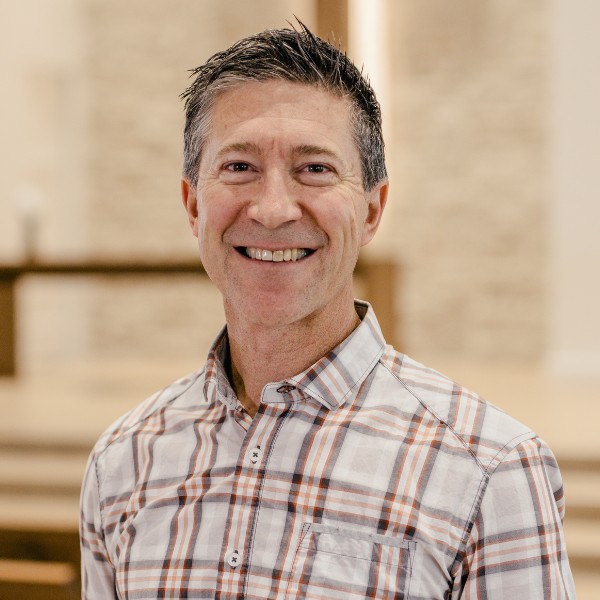Our staff recently finished reading True Devotion: In Search of Authentic Spirituality by Allan Chapple. It is an insightful and practical book that describes devotional practices in the Reformed and Puritan tradition, going back to the 1500’s. One practice in particular was used over and over to draw near to God, a practice largely forgotten in our day. This is how Thomas Brooks, a 1600’s pastor described it:
“[Christians] usually thrive best who meditate most. Meditation is a soul-fattening duty; it is a grace-strengthening duty. You may read much and hear much, yet without meditation you will never be excellent Christians.”
What is Christian meditation?
In short, Christian meditation is not what we think of when we hear that word today. In contemporary life, “meditation” usually refers to an eastern religious practice adapted for our times. Often it is used as a way to manage stress by repeating a mantra to empty one’s mind and let go of anxiety. Meditation is sometimes synonymous with being mindful of our present surroundings (“mindfulness”). These kinds of meditation have no Biblical grounding. As with other phrases that sound just fine at first – “Bobby has a lot of faith;” “Babette is very spiritual” – clarifying questions should follow. What does Bobby have faith in? Where does Babette’s spirituality find its source and strength? It is not the faith or spirituality that matters, but the object that matters. If you have just a tiny bit of faith in Jesus, or a beginner’s spirituality grounded in the Gospel, you are infinitely better off than the most spiritual guru who does not know or trust in Christ.
Similarly, Christian meditation is not emptying the mind or simply being present. Christian meditation directs our thoughts, desires and affections towards the living God. In the sermon on the mount, Jesus taught that our thoughts are a battleground between sanctification or sinfulness, (Matthew 5 and 6). Paul emphasized this as well in Philippians 4:8:
Whatever is true, whatever is honorable, whatever is just, whatever is pure, whatever is lovely, whatever is commendable, if there is any excellence, if there is anything worthy of praise, think about these things.
The battle for our minds is what we think about and meditate on. Will it be spiritual truths that change us from the inside out, or myriad other competing and fleeting thoughts, ideas, and desires that lead us away from deep communion with God?
Christian meditation, then, is the intentional activity of calling to mind, considering, dwelling upon, and applying the what we we know about the works and ways and purposes and promises of God. In other words, it is to think deeply about His Word. This is how we fatten up our souls.
Christian meditation, then, is the intentional activity of calling to mind, considering, dwelling upon, and applying the what we we know about the works and ways and purposes and promises of God.
To meditate is to think about a verse like a cow chews its cud (cud – “partly digested food returned from the stomach to the mouth for further chewing”). Cows eat grass, swallow the grass, then return to the partially digested grass (“cud”) throughout the day by bringing it back up to from one of its stomach chambers. They are actually classified as one of several “ruminant animals,” because of the way they digest food.
We can learn a lot from cows. If we want to fatten up our souls, we will ruminate on Scripture like cows ruminate their food.
An example
Here is an attempt of Christian meditation. It is not all that polished or exhaustive, and there are probably dozens of other insights into this one verse that we could make if we meditated on it for longer. First the verse, then a few bullet point insights.
Even though I walk through the valley of the shadow of death, I will fear no evil, for you are with me (Psalm 23:4).
– King David was probably in the middle of strife and difficulty. His life was threatened. Yet, he knew that the Lord was with him no matter what. This is good to know!
– Eventually I am going to walk through the path of my own death. That valley is inescapable. Yet, just like King David, I will have the almighty God shepherding me and guiding me through the final days of my life. That day might be tomorrow or 30 years from now, but it is inevitably going to come. If tomorrow I am given three weeks to live, or if I am diagnosed with rapid onset Alzheimer’s, or some other terrible disease, I know that God will not forsake me.
– There are some wonderful verses from the New Testament that help fill this promise out and make it more concrete:
-John 11:25-26 — “I am the resurrection and the life. Whoever believes in me, though he die, yet shall he live, 26 and everyone who lives and believes in me shall never die.
-Hebrews 13:5 – for he has said, “I will never leave you nor forsake you.”
– Not only will we live, though we must walk through the dark valley of the shadow of death, but we need not fear when we walk it. It is so easy to be subconsciously subdued and controlled by fear – fear of failure, of what other people will think of me, of saying the wrong thing, of being hurt. Yet if it is true that we, like King David, need not fear evil even on death’s door, how much more should we not fear relatively inconsequential things like whether people like us or whether we succeed or fail?! Lord, help me not to fear!
– No matter how alone, bewildered, or angry I am about my circumstances, I can bring all of my concerns to the One who walks with me through them.
Brothers and sisters, chew on the Word of God like a cow chews its cud. All day, turning over a small portion in our minds, weighing it carefully to understand it better, asking questions to understand the meaning and the implications of the text, talking to family and church family members about it. This is how we win the battle for our minds and put His Word at the center of our inner lives.
In part two, I’ll focus on another important way of winning the battle for our minds.
Get fat,
Pastor David

